
by Ria Olivier | Oct 21, 2024 | Announcement, Antarctica, Research
 You are invited to participate in an online mini symposium on Quaternary (including Holocene!) climate and environmental change in the Southern Hemisphere. This is an initiative by the WiSH (Warm Intervals in the Southern Hemisphere) group, an INQUA funded project. Whether your field is in archaeology, palaeontology, mathematics, palaeoclimate… or you are into developing new methods and techniques in modelling, multi-proxy dating etc., we would like to hear from you!
You are invited to participate in an online mini symposium on Quaternary (including Holocene!) climate and environmental change in the Southern Hemisphere. This is an initiative by the WiSH (Warm Intervals in the Southern Hemisphere) group, an INQUA funded project. Whether your field is in archaeology, palaeontology, mathematics, palaeoclimate… or you are into developing new methods and techniques in modelling, multi-proxy dating etc., we would like to hear from you! 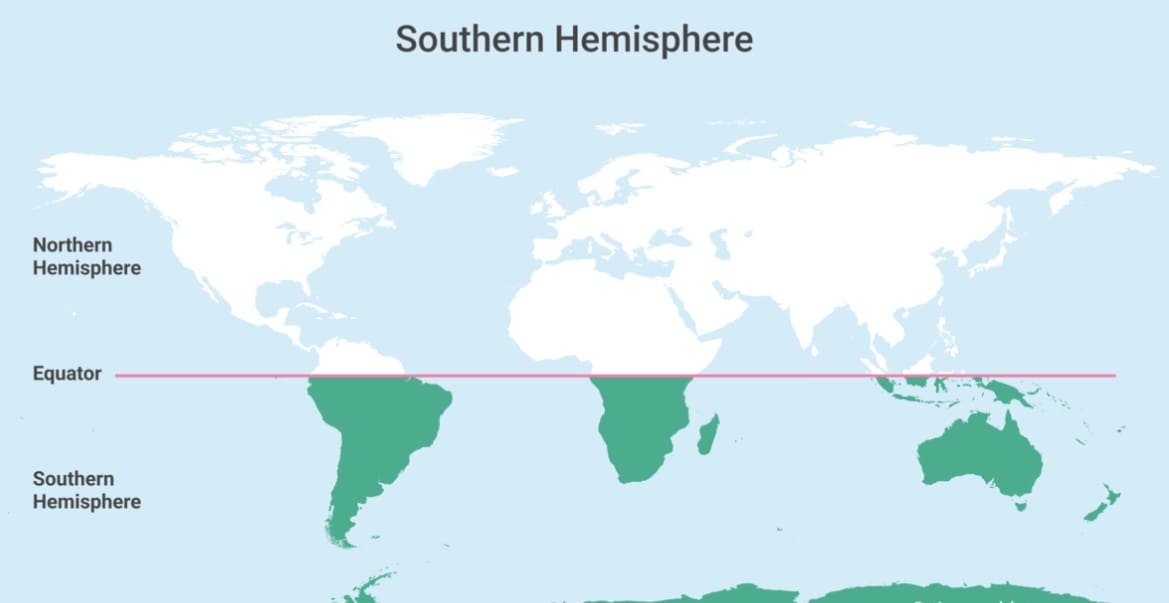 The aim is to share recent research results and ideas related to Southern Hemisphere climatic and environmental change and variability, in particular during the late Pleistocene and Holocene, and in a range of environmental contexts. We especially encourage postgraduate students to attend and present! We have coordinated meetings for each Southern Hemisphere region, as follows, depending on where you work (not where you are based):
The aim is to share recent research results and ideas related to Southern Hemisphere climatic and environmental change and variability, in particular during the late Pleistocene and Holocene, and in a range of environmental contexts. We especially encourage postgraduate students to attend and present! We have coordinated meetings for each Southern Hemisphere region, as follows, depending on where you work (not where you are based):
- South American research community: 4 February 2025 (~9am-3pm Santiago, Chile, UTC-3), online, free of charge!
- Southern African research community: 5 February 2025 (~9am-3pm, Johannesburg, South Africa, UTC+2), online, free of charge!
- New Zealand and Australian research community: 6-8 February 2025, University of Canterbury Cass field station, in person, small charge applies.
In all instances, more information will follow.
To participate by presenting, please submit your abstract by 6 December 2024 using the template (click here to download) to the relevant regional contact below. Submissions can be made to:
If you would like to attend but not participate by presenting, this is absolutely fine, we will be sending meeting links for the S Am/SA online elements, but please indicate your intentions by just dropping an email to the relevant person. Feel free to contact us for any queries.
WiSH Steering Committee contact details:
South America:
Southern Africa:
Australasia:

by Ria Olivier | Mar 8, 2024 | Research, SANAP, SANAP Student, Science
 During the 6th SANAP symposium, time was allocated for the presentation of governance issues, and this was done on the first day during the opening ceremony. Dr Gilbert Siko , the Director of Marine & Polar Research at the Department of Science and Innovation gave the first presentation. His role within the Research Development and Support Programme it is to promote the development of research, the production of scientific knowledge, and human capital development in science areas in which South Africa enjoys a geographic advantage, that includes Antarctic and marine research. Dr Siko highlighted the strategic importance of the research conducted through the South African National Antarctic Programme.
During the 6th SANAP symposium, time was allocated for the presentation of governance issues, and this was done on the first day during the opening ceremony. Dr Gilbert Siko , the Director of Marine & Polar Research at the Department of Science and Innovation gave the first presentation. His role within the Research Development and Support Programme it is to promote the development of research, the production of scientific knowledge, and human capital development in science areas in which South Africa enjoys a geographic advantage, that includes Antarctic and marine research. Dr Siko highlighted the strategic importance of the research conducted through the South African National Antarctic Programme.
 Dr Siko was followed by Tracy Klarenbeek, Director of Knowledge Advancement and Support of the National Research Foundation (NRF). She highlighted that create innovative funding instruments such as SANAP serve to transform the scientific landscape and inspire a representative research community to aspire to global competitiveness. She shared the outcomes of the 2023 SANAP Call for Proposals for funding cycle 2024 – 2026 with the community. She also mentioned that mentorship initiatives for unsuccessful applicants would be implemented via SAPRI.(right)
Dr Siko was followed by Tracy Klarenbeek, Director of Knowledge Advancement and Support of the National Research Foundation (NRF). She highlighted that create innovative funding instruments such as SANAP serve to transform the scientific landscape and inspire a representative research community to aspire to global competitiveness. She shared the outcomes of the 2023 SANAP Call for Proposals for funding cycle 2024 – 2026 with the community. She also mentioned that mentorship initiatives for unsuccessful applicants would be implemented via SAPRI.(right)
Dr Siko was followed by Tracy Klarenbeek, Director of Knowledge Advancement and Support of the National Research Foundation (NRF). She highlighted that create innovative funding instruments such as SANAP serve to transform the scientific landscape and inspire a representative research community to aspire to global competitiveness. She shared the outcomes of the 2023 SANAP Call for Proposals for funding cycle 2024 – 2026 with the community. She also mentioned that mentorship initiatives for unsuccessful applicants would be implemented via SAPRI.

 Prof Bettine van Vuuren (right), Chair of the South African National Committee for SCAR gave feedback on the committee meeting. She also highlighted the function and activities of SCAR and the importance to be informed of these activities, and to be aware of scholarship opportunities. She encouraged early career researchers to become involved in SCAR committees and action scholarships.
Prof Bettine van Vuuren (right), Chair of the South African National Committee for SCAR gave feedback on the committee meeting. She also highlighted the function and activities of SCAR and the importance to be informed of these activities, and to be aware of scholarship opportunities. She encouraged early career researchers to become involved in SCAR committees and action scholarships.
The highlight of the Symposium was the international Antarctic day celebrations where Tracy Klarenbeek (left)addressed all attendees during the closing ceremony with a heartfelt talk. All participants, old and new, were thanked for their participation in the Symposium and their dedication to the SANAP programme. Tracy Klarenbeek talk gave a personal perspective of administering the SANAP programme:
“by facilitating Antarctic and Southern Ocean research, and awarding student bursaries, it is evident that the work I do changes lives”.
The opportunity to access the Southern Ocean, Antarctica and the sub-Antarctic islands (Gough and the Prince Edward Islands) is limited to the lucky few, and the work of the National Research Foundation makes this a reality for researchers and students alike.
 A printed Map of Antarctica was signed by everyone on International Antarctica Day 1st December 2023 at Houw Hoek Hotel!
A printed Map of Antarctica was signed by everyone on International Antarctica Day 1st December 2023 at Houw Hoek Hotel!
Speakers photos: credit Anche Louw – SA Polar Research Infrastructure/Antarctic Legacy of SA

by Ria Olivier | Mar 6, 2024 | APECSSA, Research, SANAP, SANAP Student
 The Early Career Event at the SANAP symposium was a first for Early Career Researchers(ECR), but also for the first time during a SANAP symposium recognition was given for oral and poster presentations done by ECR’s. (above9l-r): Awardees – Joshua Tsamba, Saffiyah Moos, Ben Steyn, Stephni van der Merwe, Lillina Ruiters, Morgan Raath-Kruger)
The Early Career Event at the SANAP symposium was a first for Early Career Researchers(ECR), but also for the first time during a SANAP symposium recognition was given for oral and poster presentations done by ECR’s. (above9l-r): Awardees – Joshua Tsamba, Saffiyah Moos, Ben Steyn, Stephni van der Merwe, Lillina Ruiters, Morgan Raath-Kruger)
 (l-r): Joshua Tsamba, Saffiyah Moos, Ben Steyn receiving their certificates
(l-r): Joshua Tsamba, Saffiyah Moos, Ben Steyn receiving their certificates
Oral Presentations:
- 1st Joshua Tsamba: The first record of fungal endophytes associated with the sub-Antarctic cushion plant, Azorella selago (Apiaceae) on Marion Island. PI – Dr Michele Greve (Abstract)
- 2nd Safiyyah Moos: Investigating the dynamics and exchanges across the ice-ocean interface in artificial sea ice. PI – Dr Tokoloho Rampai (Abstract)
- 3rd Ben Steyn: A Longitudinal Study of the Open-Water Performance of an Ice-Class Vessel. PI- Prof Annie Bekker (Abstract)
 (l-r) Certificates handed to Stephni van der Merwe, Lillina Ruiters, Morgan Raath Kruger( had to leave before ceremony)
(l-r) Certificates handed to Stephni van der Merwe, Lillina Ruiters, Morgan Raath Kruger( had to leave before ceremony)
Poster Presentations:
- 1st Stephni van der Merwe: Long-term vegetation change (1965-2020) in response to rapid warming and drying in a sub-Antarctic tundra: evidence from repeat photography. PI – Dr Michelle Greve (Abstract)
- 2nd Lillina Ruiters: Variability of phytoplankton photo physiology in the Southern Ocean: an analysis of assumptions and uncertainties . PI- Dr Sandy Thomalla (Abstract)
- 3rd Morgan Raath- Kruger: Do anisotropic processes influence fine-scale spatial genetic structure of a keystone sub-Antarctic plant species? PI – Prof Peter Le Roux (Abstract)
The symposium was an opportunity for human capital development. It is supported by the government and a peer-reviewed research programme that will provide future opportunities for all young, early career and established researchers working in the Southern Ocean, Antarctica and Islands. The students had the opportunity to present their work to a wider audience either in an oral or poster presentation. The SANAP symposium gave the students planning to present on international a ‘practice run’ with feedback.
 Awards for oral and poster presentations were given to early-career scientists. These awards were to give recognition to Early career researchers and the effort they did in preparing and presenting their research. Principal Investigators made themselves available to mark presentations of ECR’s via a marksheet and we appreciate their time and comments. We congratulate the awardees and their Principal investigators and hope this recognition will motivate them in their career development. (above: Michelle Greve, Sandy Thomalla, Annie Bekker, Tokoloho Rampai, Peter le Roux)
Awards for oral and poster presentations were given to early-career scientists. These awards were to give recognition to Early career researchers and the effort they did in preparing and presenting their research. Principal Investigators made themselves available to mark presentations of ECR’s via a marksheet and we appreciate their time and comments. We congratulate the awardees and their Principal investigators and hope this recognition will motivate them in their career development. (above: Michelle Greve, Sandy Thomalla, Annie Bekker, Tokoloho Rampai, Peter le Roux)
 Certificates signed by Dr Gilbert Siko of the Department of Science and innovation and Ms Tracy Klarenbeek form the National Research Foundation were handed to the recipients. There were a few Honours students that participate in the symposium and there presentations were of high standard and although they do not qualify for the ECR awards we would like to mention Sarah du Preez and Amber Sneddon for their Presentations. (above (l-R): Dr Gilbert Siko, Honour students with Annie Bekker and Tracy Klarenbeek, Tracy Klarenbeek)
Certificates signed by Dr Gilbert Siko of the Department of Science and innovation and Ms Tracy Klarenbeek form the National Research Foundation were handed to the recipients. There were a few Honours students that participate in the symposium and there presentations were of high standard and although they do not qualify for the ECR awards we would like to mention Sarah du Preez and Amber Sneddon for their Presentations. (above (l-R): Dr Gilbert Siko, Honour students with Annie Bekker and Tracy Klarenbeek, Tracy Klarenbeek)
Images of ceremony credit: Anche Louw (SA Polar Research Infrastructure and Antarctic Legacy of SA)

by Ria Olivier | Mar 4, 2024 | APECSSA, Fellowship, Research, SANAP, SANAP Student
 For the first time ever at a SANAP Symposium an Early Career Event was organised by APECS-South Africa. The event was an opportunity to encourage ECRs to become members and to socialise with current members, in fact it was the first time that the current committee had all managed to meet in person and not over zoom. (Above group photo of APECSSA committee members 2024 that were able to attend the Symposium)
For the first time ever at a SANAP Symposium an Early Career Event was organised by APECS-South Africa. The event was an opportunity to encourage ECRs to become members and to socialise with current members, in fact it was the first time that the current committee had all managed to meet in person and not over zoom. (Above group photo of APECSSA committee members 2024 that were able to attend the Symposium)
 APECS-South Africa also wanted to use this time to engage in a community survey with ECRs to discuss important topics around career development and community inclusion. This survey was being conducted anonymously in real time and so provided a safe space for ECRs to raise any concerns they felt within the SANAP community. Most importantly, APECS-South Africa was able to then relay the results of this survey to the PIs and senior leadership of the SANAP community. (Above words used by ECRs to describe their journey, skills they need and what is missing in the organisation)
APECS-South Africa also wanted to use this time to engage in a community survey with ECRs to discuss important topics around career development and community inclusion. This survey was being conducted anonymously in real time and so provided a safe space for ECRs to raise any concerns they felt within the SANAP community. Most importantly, APECS-South Africa was able to then relay the results of this survey to the PIs and senior leadership of the SANAP community. (Above words used by ECRs to describe their journey, skills they need and what is missing in the organisation)

 APECS-South Africa plans to continue running this survey going forward at future SANAP Symposiums so that ECRs feel like their voice is being heard and help the SANAP Community become better and more inclusive for everyone. During the workshop ECRs were able to respond to many questions (above ex). If you as an ECR has not yet responded click on the QR Code.
APECS-South Africa plans to continue running this survey going forward at future SANAP Symposiums so that ECRs feel like their voice is being heard and help the SANAP Community become better and more inclusive for everyone. During the workshop ECRs were able to respond to many questions (above ex). If you as an ECR has not yet responded click on the QR Code.
Meet APECSSA 2024 Committee
Full feedback presentation available
(Text, Slides and Group Photo by Tommy Ryan-Keogh.)

by Ria Olivier | Mar 1, 2024 | Data Management, Environment, Prince Edward Island, Research, SANAP
 A session has been included in the 6th SANAP symposium to include the Prince Edward Island scientific survey members as they were arriving late on the 29 November. As a cross discipline on Data Management and the Summer Survey Participants. Christel Hansen chaired the session ‘Data and frameworks in the support of polar research’.
A session has been included in the 6th SANAP symposium to include the Prince Edward Island scientific survey members as they were arriving late on the 29 November. As a cross discipline on Data Management and the Summer Survey Participants. Christel Hansen chaired the session ‘Data and frameworks in the support of polar research’.
 Above(l-r): Newi Makhado, Janine Schoombie, Chris Oosthuizen, David Hedding, Stefan Schoombie
Above(l-r): Newi Makhado, Janine Schoombie, Chris Oosthuizen, David Hedding, Stefan Schoombie
- Newi Makhado: Ecoregionalisation of the pelagic zone in the Subantarctic and subtropical Indian Ocean.
- Janine Schoombie: Studies of wind, plants and seabirds on Marion Island. (Abstract)
- Chris Oosthuizen: Marine predators: ecosystem sentinels that help inform Southern Ocean management. (Abstract)
- David Hedding: A geospatial database for the sub-Antarctic Prince Edward Islands. (Abstract)
- Stefan Schoombie: Non-breeding distribution and moulting activity of Blue Petrels (Halobaena caerulea) breeding on sub-Antarctic Marion Island.
- Christel Hansen: Consistent mapping and geospatial information representation in the Antarctic and sub-Antarctic: why South Africans should care. (Abstract)
 Above: Scientific Survey members taken on Prince Edward Island. Azwianewi Makhado, Maëlle Connan, David Hedding, Charlene Janion-Scheepers , Rowan Jordaan, Makhudu Masotla, Thomas Mufanadzo, Chris Oosthuizen, Liezl Pretorius, Janine Schoombie, Stefan Schoombie, Yinhla Shihlomule, and Elsa van Ginkel. Read more
Above: Scientific Survey members taken on Prince Edward Island. Azwianewi Makhado, Maëlle Connan, David Hedding, Charlene Janion-Scheepers , Rowan Jordaan, Makhudu Masotla, Thomas Mufanadzo, Chris Oosthuizen, Liezl Pretorius, Janine Schoombie, Stefan Schoombie, Yinhla Shihlomule, and Elsa van Ginkel. Read more

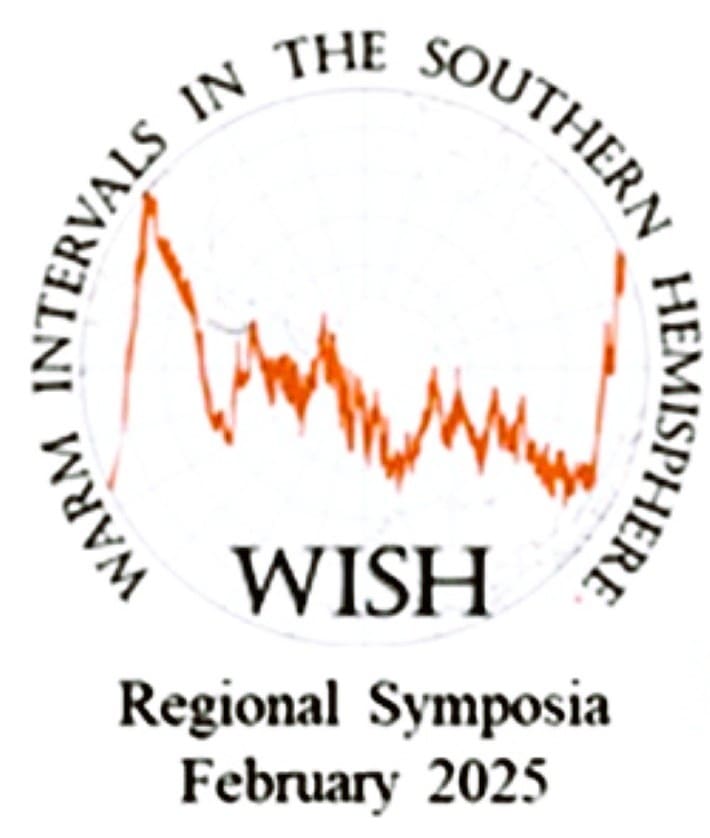 You are invited to participate in an online mini symposium on Quaternary (including Holocene!) climate and environmental change in the Southern Hemisphere. This is an initiative by the WiSH (Warm Intervals in the Southern Hemisphere) group, an INQUA funded project. Whether your field is in archaeology, palaeontology, mathematics, palaeoclimate… or you are into developing new methods and techniques in modelling, multi-proxy dating etc., we would like to hear from you!
You are invited to participate in an online mini symposium on Quaternary (including Holocene!) climate and environmental change in the Southern Hemisphere. This is an initiative by the WiSH (Warm Intervals in the Southern Hemisphere) group, an INQUA funded project. Whether your field is in archaeology, palaeontology, mathematics, palaeoclimate… or you are into developing new methods and techniques in modelling, multi-proxy dating etc., we would like to hear from you!  The aim is to share recent research results and ideas related to Southern Hemisphere climatic and environmental change and variability, in particular during the late Pleistocene and Holocene, and in a range of environmental contexts. We especially encourage postgraduate students to attend and present! We have coordinated meetings for each Southern Hemisphere region, as follows, depending on where you work (not where you are based):
The aim is to share recent research results and ideas related to Southern Hemisphere climatic and environmental change and variability, in particular during the late Pleistocene and Holocene, and in a range of environmental contexts. We especially encourage postgraduate students to attend and present! We have coordinated meetings for each Southern Hemisphere region, as follows, depending on where you work (not where you are based):
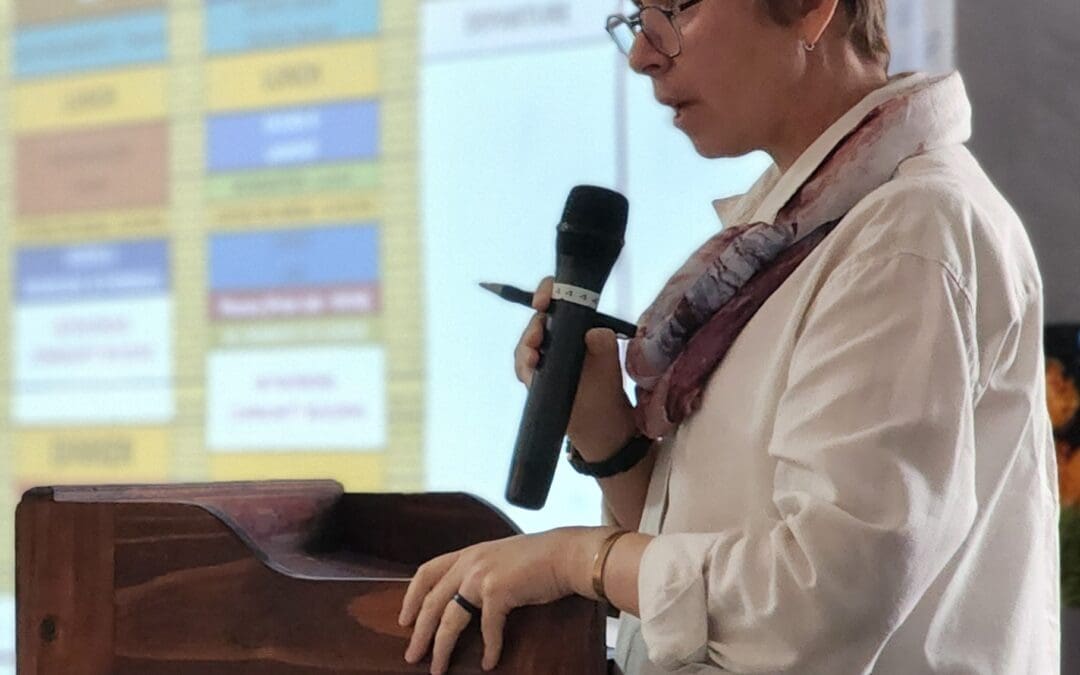
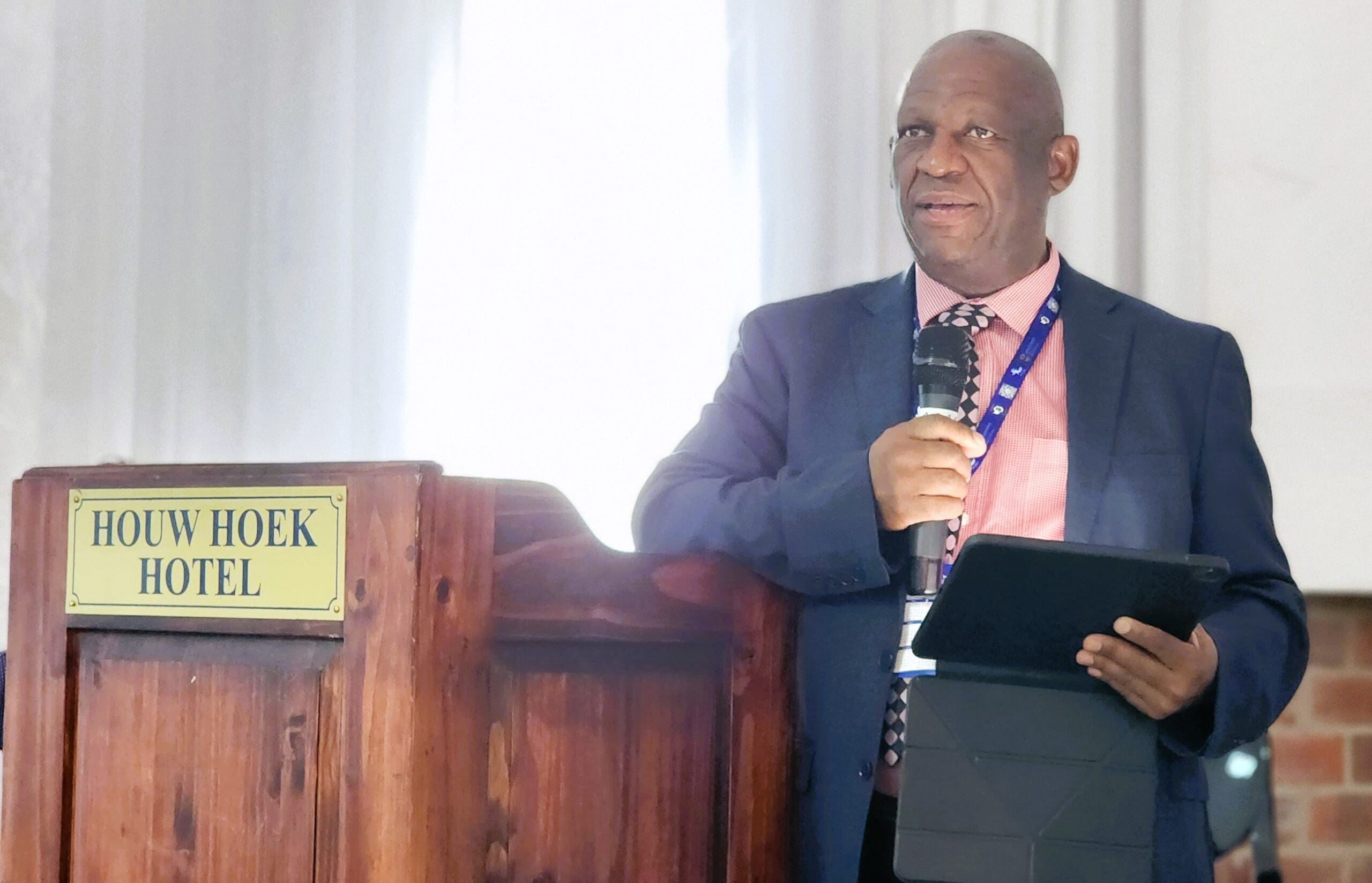 During the 6th SANAP symposium, time was allocated for the presentation of governance issues, and this was done on the first day during the opening ceremony. Dr Gilbert Siko , the Director of Marine & Polar Research at the Department of Science and Innovation gave the first presentation. His role within the Research Development and Support Programme it is to promote the development of research, the production of scientific knowledge, and human capital development in science areas in which South Africa enjoys a geographic advantage, that includes Antarctic and marine research. Dr Siko highlighted the strategic importance of the research conducted through the South African National Antarctic Programme.
During the 6th SANAP symposium, time was allocated for the presentation of governance issues, and this was done on the first day during the opening ceremony. Dr Gilbert Siko , the Director of Marine & Polar Research at the Department of Science and Innovation gave the first presentation. His role within the Research Development and Support Programme it is to promote the development of research, the production of scientific knowledge, and human capital development in science areas in which South Africa enjoys a geographic advantage, that includes Antarctic and marine research. Dr Siko highlighted the strategic importance of the research conducted through the South African National Antarctic Programme.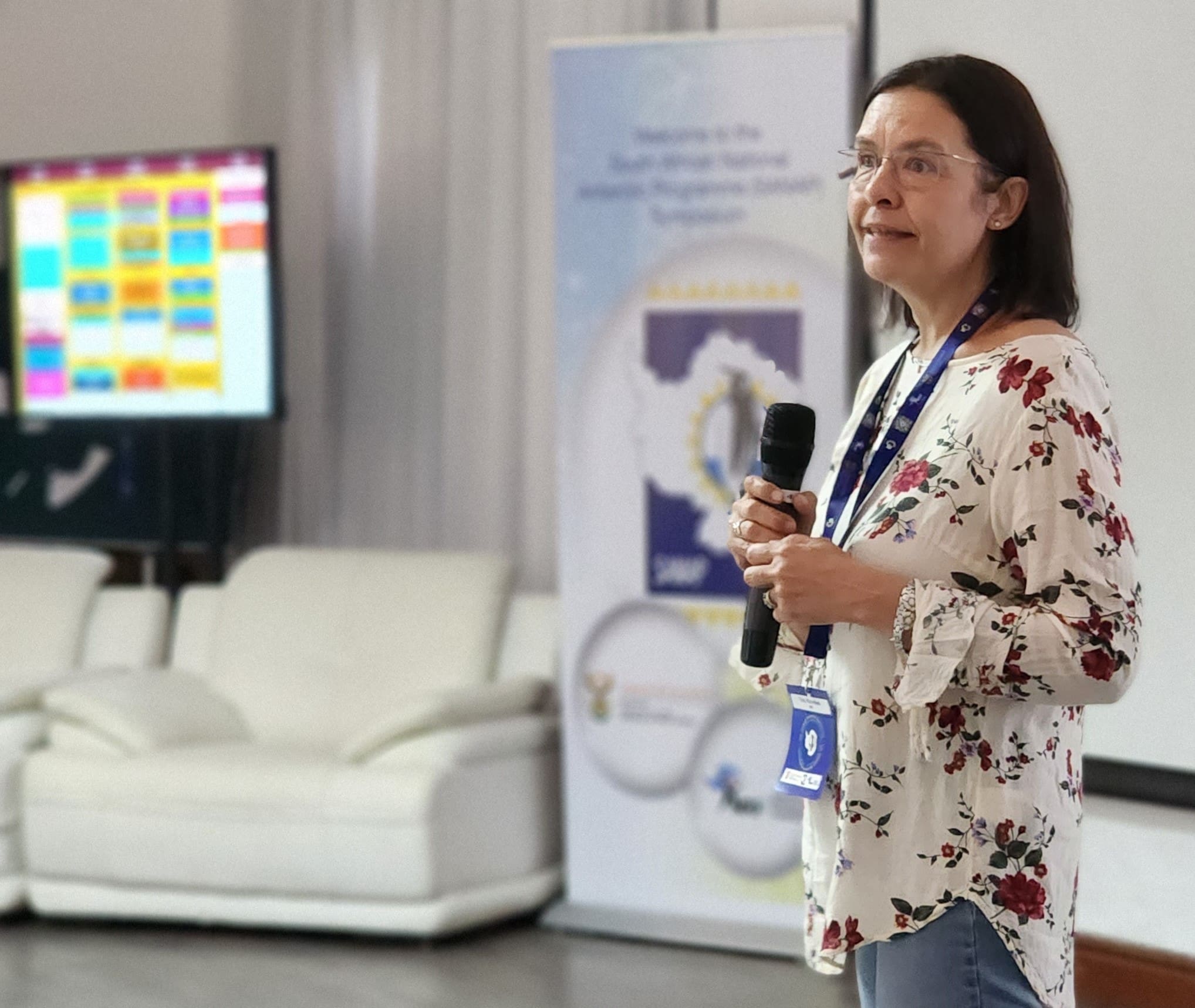 Dr Siko was followed by Tracy Klarenbeek, Director of Knowledge Advancement and Support of the National Research Foundation (NRF). She highlighted that create innovative funding instruments such as SANAP serve to transform the scientific landscape and inspire a representative research community to aspire to global competitiveness. She shared the outcomes of the 2023 SANAP Call for Proposals for funding cycle 2024 – 2026 with the community. She also mentioned that mentorship initiatives for unsuccessful applicants would be implemented via SAPRI.(right)
Dr Siko was followed by Tracy Klarenbeek, Director of Knowledge Advancement and Support of the National Research Foundation (NRF). She highlighted that create innovative funding instruments such as SANAP serve to transform the scientific landscape and inspire a representative research community to aspire to global competitiveness. She shared the outcomes of the 2023 SANAP Call for Proposals for funding cycle 2024 – 2026 with the community. She also mentioned that mentorship initiatives for unsuccessful applicants would be implemented via SAPRI.(right)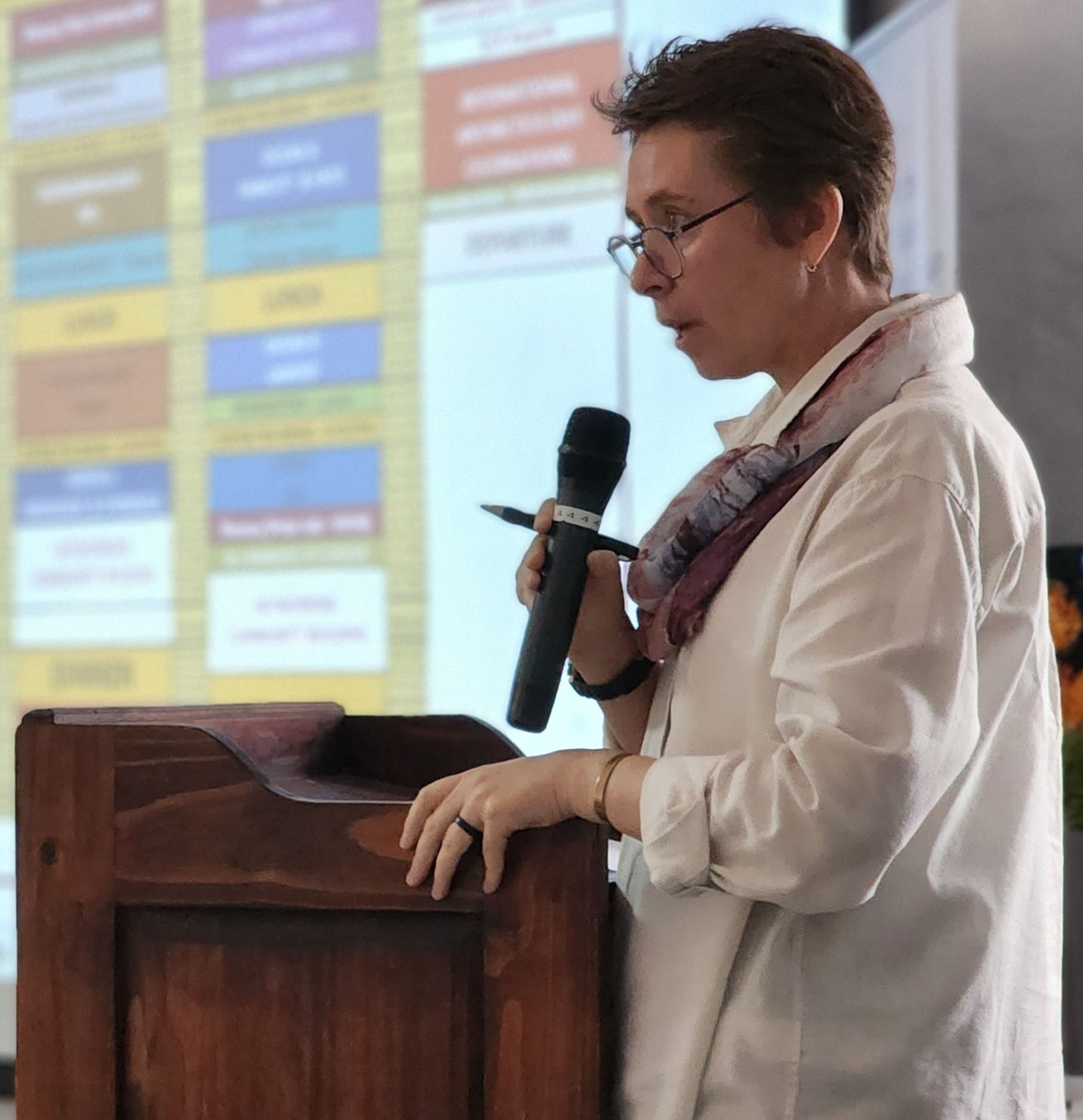
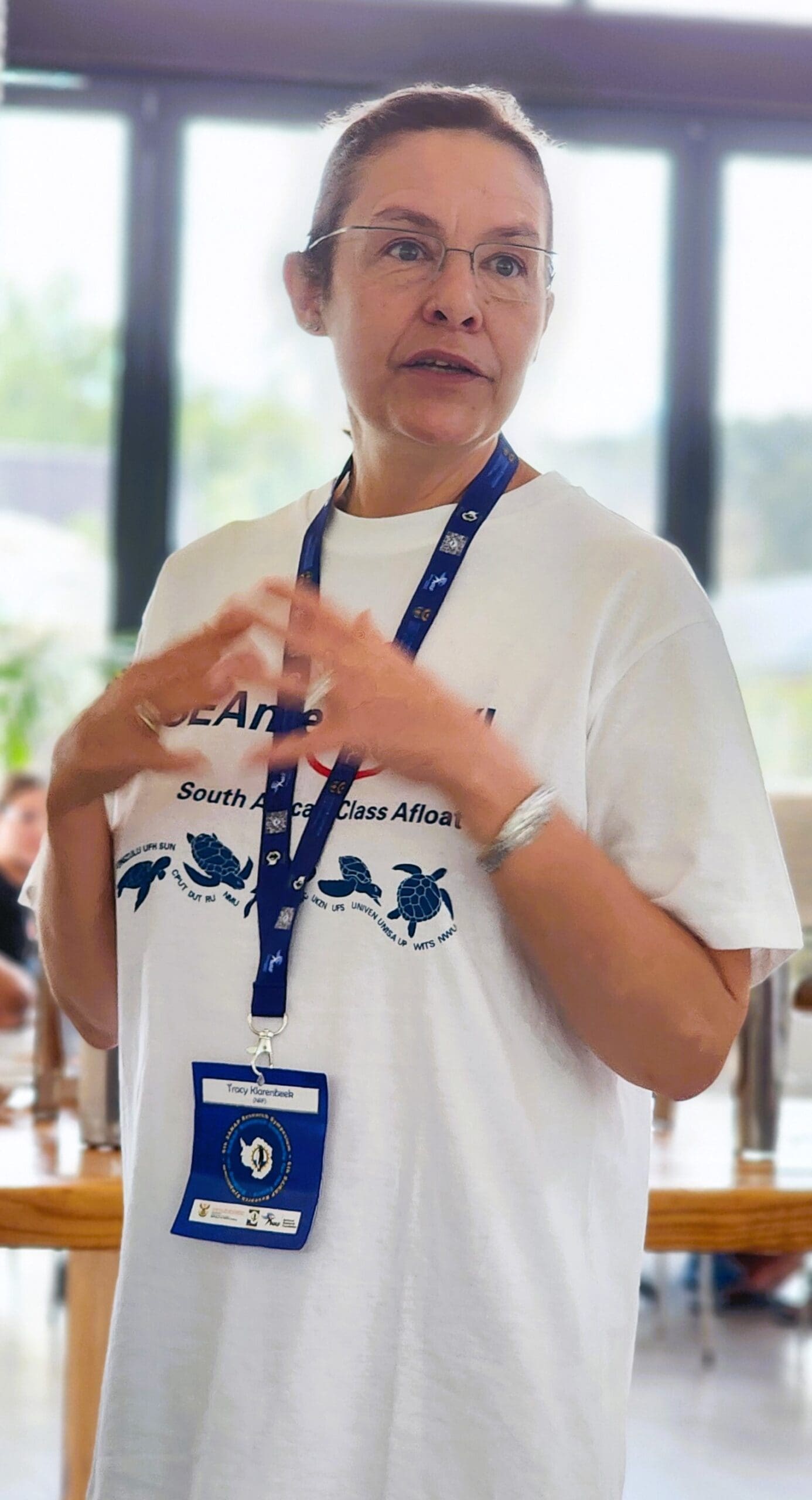 Prof Bettine van Vuuren (right), Chair of the
Prof Bettine van Vuuren (right), Chair of the  A printed Map of Antarctica was signed by everyone on International Antarctica Day 1st December 2023 at Houw Hoek Hotel!
A printed Map of Antarctica was signed by everyone on International Antarctica Day 1st December 2023 at Houw Hoek Hotel!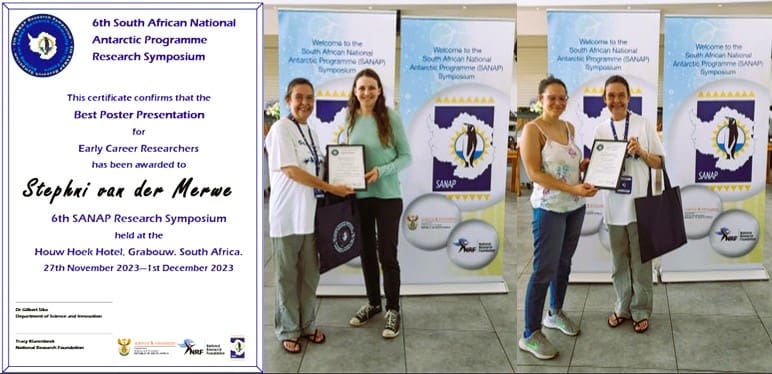
 The Early Career Event at the SANAP symposium was a first for Early Career Researchers(ECR), but also for the first time during a SANAP symposium recognition was given for oral and poster presentations done by ECR’s. (above9l-r): Awardees – Joshua Tsamba, Saffiyah Moos, Ben Steyn, Stephni van der Merwe, Lillina Ruiters, Morgan Raath-Kruger)
The Early Career Event at the SANAP symposium was a first for Early Career Researchers(ECR), but also for the first time during a SANAP symposium recognition was given for oral and poster presentations done by ECR’s. (above9l-r): Awardees – Joshua Tsamba, Saffiyah Moos, Ben Steyn, Stephni van der Merwe, Lillina Ruiters, Morgan Raath-Kruger) (l-r): Joshua Tsamba, Saffiyah Moos, Ben Steyn receiving their certificates
(l-r): Joshua Tsamba, Saffiyah Moos, Ben Steyn receiving their certificates Awards for oral and poster presentations were given to early-career scientists. These awards were to give recognition to Early career researchers and the effort they did in preparing and presenting their research. Principal Investigators made themselves available to mark presentations of ECR’s via a marksheet and we appreciate their time and comments. We congratulate the awardees and their Principal investigators and hope this recognition will motivate them in their career development. (above: Michelle Greve, Sandy Thomalla, Annie Bekker, Tokoloho Rampai, Peter le Roux)
Awards for oral and poster presentations were given to early-career scientists. These awards were to give recognition to Early career researchers and the effort they did in preparing and presenting their research. Principal Investigators made themselves available to mark presentations of ECR’s via a marksheet and we appreciate their time and comments. We congratulate the awardees and their Principal investigators and hope this recognition will motivate them in their career development. (above: Michelle Greve, Sandy Thomalla, Annie Bekker, Tokoloho Rampai, Peter le Roux)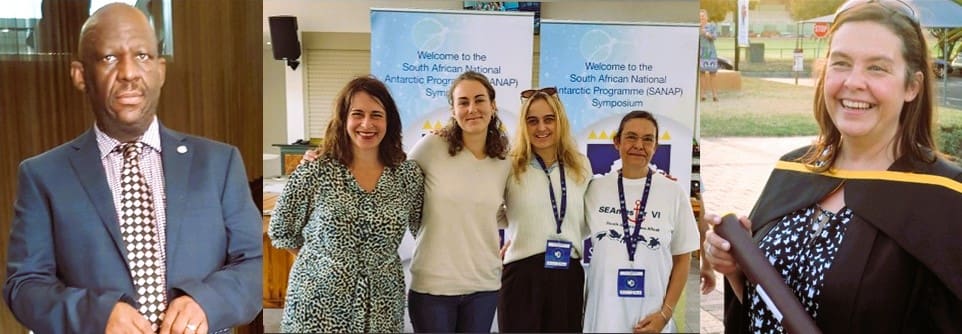 Certificates signed by Dr Gilbert Siko of the Department of Science and innovation and Ms Tracy Klarenbeek form the National Research Foundation were handed to the recipients. There were a few Honours students that participate in the symposium and there presentations were of high standard and although they do not qualify for the ECR awards we would like to mention Sarah du Preez and Amber Sneddon for their Presentations. (above (l-R): Dr Gilbert Siko, Honour students with Annie Bekker and Tracy Klarenbeek, Tracy Klarenbeek)
Certificates signed by Dr Gilbert Siko of the Department of Science and innovation and Ms Tracy Klarenbeek form the National Research Foundation were handed to the recipients. There were a few Honours students that participate in the symposium and there presentations were of high standard and although they do not qualify for the ECR awards we would like to mention Sarah du Preez and Amber Sneddon for their Presentations. (above (l-R): Dr Gilbert Siko, Honour students with Annie Bekker and Tracy Klarenbeek, Tracy Klarenbeek)
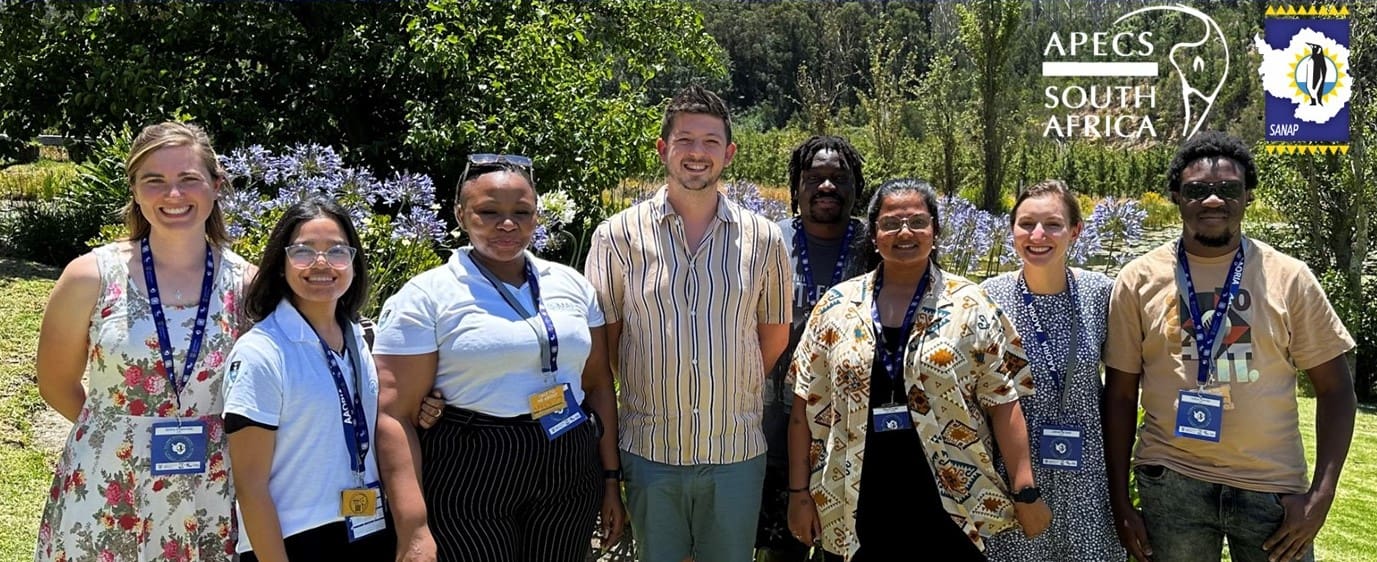 For the first time ever at a SANAP Symposium an Early Career Event was organised by APECS-South Africa. The event was an opportunity to encourage ECRs to become members and to socialise with current members, in fact it was the first time that the current committee had all managed to meet in person and not over zoom. (Above group photo of APECSSA committee members 2024 that were able to attend the Symposium)
For the first time ever at a SANAP Symposium an Early Career Event was organised by APECS-South Africa. The event was an opportunity to encourage ECRs to become members and to socialise with current members, in fact it was the first time that the current committee had all managed to meet in person and not over zoom. (Above group photo of APECSSA committee members 2024 that were able to attend the Symposium) APECS-South Africa also wanted to use this time to engage in a community survey with ECRs to discuss important topics around career development and community inclusion. This survey was being conducted anonymously in real time and so provided a safe space for ECRs to raise any concerns they felt within the SANAP community. Most importantly, APECS-South Africa was able to then relay the results of this survey to the PIs and senior leadership of the SANAP community. (Above words used by ECRs to describe their journey, skills they need and what is missing in the organisation)
APECS-South Africa also wanted to use this time to engage in a community survey with ECRs to discuss important topics around career development and community inclusion. This survey was being conducted anonymously in real time and so provided a safe space for ECRs to raise any concerns they felt within the SANAP community. Most importantly, APECS-South Africa was able to then relay the results of this survey to the PIs and senior leadership of the SANAP community. (Above words used by ECRs to describe their journey, skills they need and what is missing in the organisation)
 APECS-South Africa plans to continue running this survey going forward at future SANAP Symposiums so that ECRs feel like their voice is being heard and help the SANAP Community become better and more inclusive for everyone. During the workshop ECRs were able to respond to many questions (above ex). If you as an ECR has not yet responded click on the QR Code.
APECS-South Africa plans to continue running this survey going forward at future SANAP Symposiums so that ECRs feel like their voice is being heard and help the SANAP Community become better and more inclusive for everyone. During the workshop ECRs were able to respond to many questions (above ex). If you as an ECR has not yet responded click on the QR Code.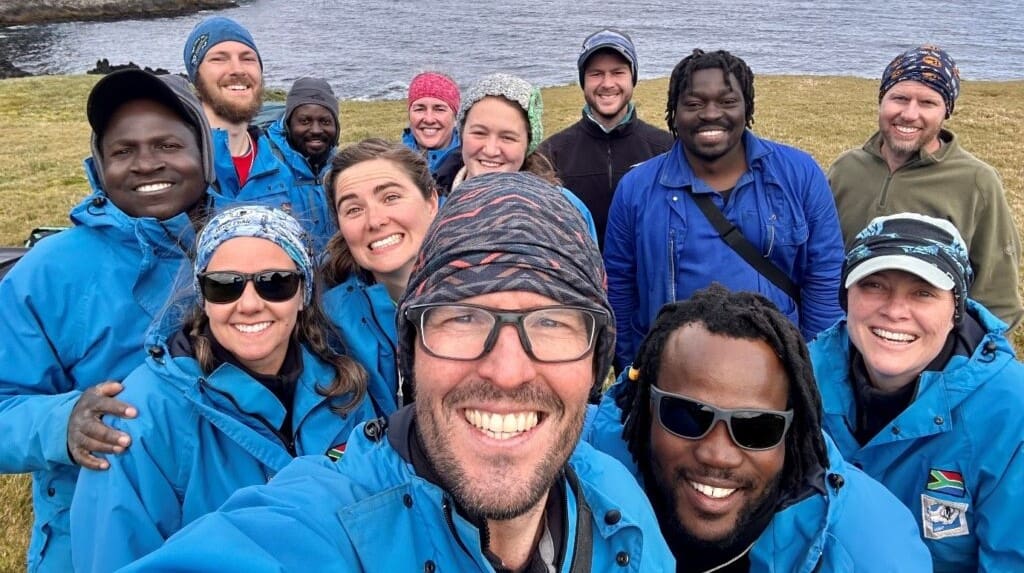
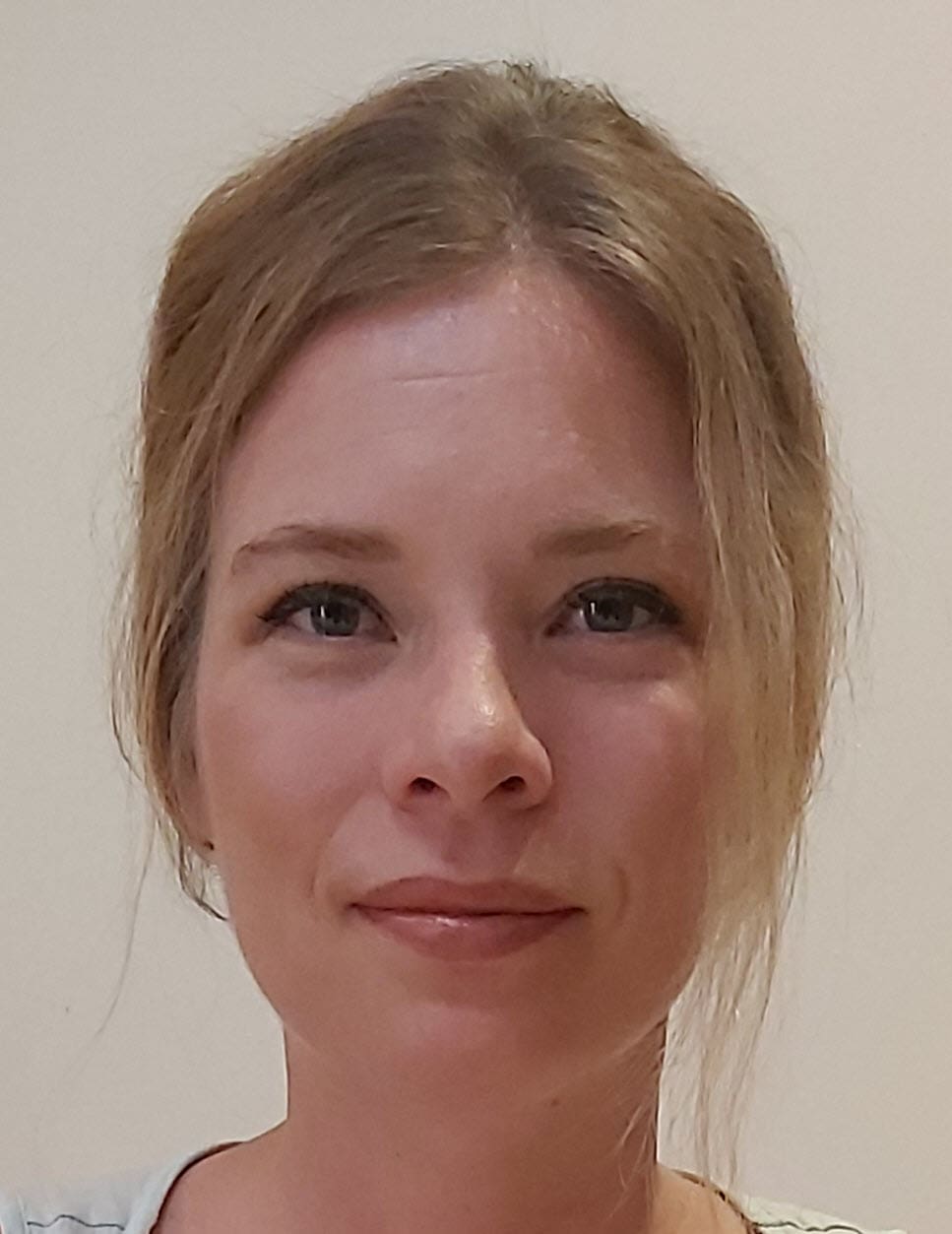 A session has been included in the 6th SANAP symposium to include the Prince Edward Island scientific survey members as they were arriving late on the 29 November. As a cross discipline on Data Management and the Summer Survey Participants. Christel Hansen chaired the session ‘Data and frameworks in the support of polar research’.
A session has been included in the 6th SANAP symposium to include the Prince Edward Island scientific survey members as they were arriving late on the 29 November. As a cross discipline on Data Management and the Summer Survey Participants. Christel Hansen chaired the session ‘Data and frameworks in the support of polar research’.  Above(l-r): Newi Makhado, Janine Schoombie, Chris Oosthuizen, David Hedding, Stefan Schoombie
Above(l-r): Newi Makhado, Janine Schoombie, Chris Oosthuizen, David Hedding, Stefan Schoombie




